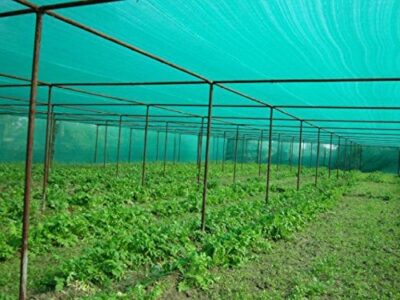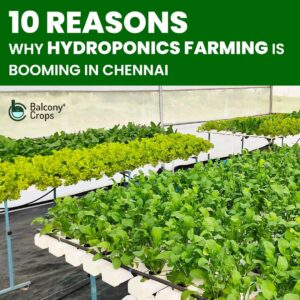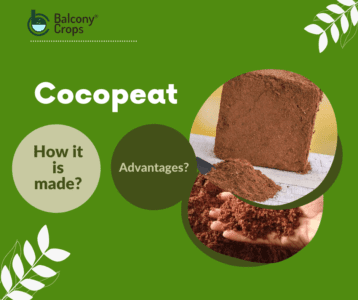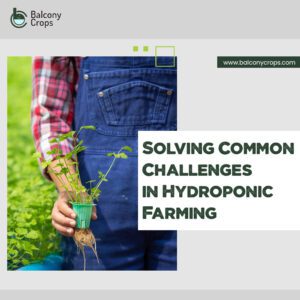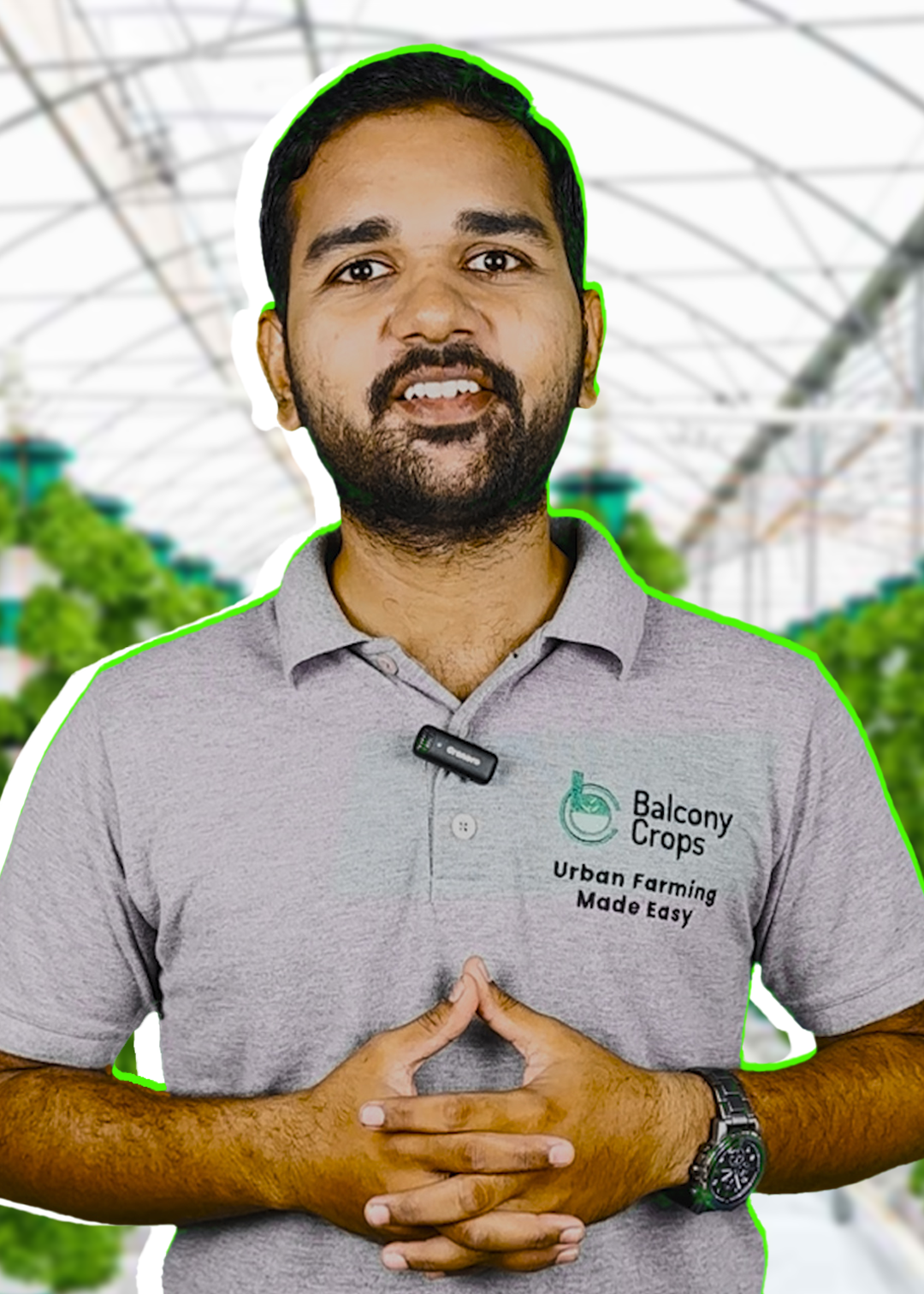Table of Contents
Introduction:
Hydroponic farming is a method of growing plants in a soilless environment. In hydroponic farming, plants are grown in a nutrient-rich water solution that is carefully balanced to provide all the necessary nutrients for the plant’s growth and development. This method of farming has several advantages over traditional soil-based agriculture, including higher yields, faster growth rates, and reduced water usage.
To achieve success in hydroponic farming, it’s crucial to maximize yields by ensuring that plants receive the right nutrients, lighting, and temperature conditions. In this blog post, we’ll explore some tips and tricks for maximizing yields in hydroponic farming.
Understanding Plant Nutrient Requirements and Its Impact on Yield
Plants require a specific set of macronutrients and micronutrients to grow and produce healthy yields. In hydroponic farming, the nutrient solution plays a critical role in plant growth and yield. Macronutrients like nitrogen, phosphorus, and potassium are essential for plant growth, while micronutrients like iron, calcium, and magnesium are necessary in smaller quantities.
To maintain proper nutrient balance, it’s essential to understand the nutrient requirements of different plant varieties. Plants grown in hydroponic systems often have different nutrient requirements than those grown in soil. Additionally, it’s important to monitor nutrient levels regularly and adjust the nutrient solution as needed to avoid nutrient deficiencies or toxicities.
To maximize yields, it’s also crucial to ensure that the nutrient solution pH level is within the optimal range for the plants being grown. Most hydroponic plants prefer a pH range between 5.5 and 6.5, depending on the specific plant variety.
Maximizing Yield with Optimal Lighting and Temperature Control
Lighting and temperature control are essential factors in maximizing yield in hydroponic farming. In hydroponic farming, the plants are grown in an indoor environment, making it necessary to provide artificial lighting that mimics natural sunlight.
Different types of lighting can be used in hydroponic farming, including fluorescent, LED, and high-pressure sodium (HPS) lights. Each type of lighting has its own benefits and drawbacks, and the choice of lighting will depend on the specific plants being grown and the available resources.
Temperature control is another crucial factor in maximizing yield in hydroponic farming. Most hydroponic plants grow best in temperatures between 65-75 degrees Fahrenheit, with some varieties preferring slightly cooler or warmer temperatures. It’s important to maintain consistent temperatures in the hydroponic system, as temperature fluctuations can lead to stress and reduced yields.
Proper Plant Care for High Yields in Hydroponic Gardening
Proper plant care is essential in maximizing yields in hydroponic gardening. This includes regular monitoring of plant growth, pruning, and training plants to promote optimal growth and yield. In hydroponic farming, it’s also crucial to maintain proper water and nutrient levels and to regularly clean and maintain the hydroponic system to avoid the buildup of harmful bacteria and algae.
Additionally, it’s essential to monitor and control pests and diseases in hydroponic farming. Since the plants are grown in a controlled environment, any pest or disease can quickly spread and cause significant damage to the crops. Regular monitoring and early detection can help prevent the spread of pests and diseases and minimize the impact on yield.
Pest and Disease Management Tips for Hydroponic Farming
One of the biggest advantages of hydroponic farming is the ability to control the growing environment. However, this also means that any pests or diseases that do find their way into your hydroponic system can spread quickly and have devastating effects on your crops.
To prevent pests and diseases, it is important to maintain a clean and sanitary environment. Make sure to regularly clean and disinfect all equipment, and use only sterile growing media.
Another effective method is to use biological control agents such as ladybugs, lacewings, and predatory mites to control pests. These insects can be introduced into your hydroponic system and will help to keep pest populations under control.
In case of diseases, it is important to immediately remove any infected plants from your hydroponic system to prevent the spread of the disease. Regularly monitoring your plants for signs of disease is crucial, and it’s important to take swift action if you do detect any symptoms.
It is also recommended to use disease-resistant plant varieties when possible and to avoid overcrowding your hydroponic system, as this can create an environment that is more susceptible to disease.
By taking these precautions and being vigilant about pest and disease control, you can help to ensure a healthy and thriving hydroponic garden.
Success Stories of Hydroponics Farming in Chennai and its Benefits
In recent years, hydroponics farming has gained popularity as a sustainable and efficient way of growing crops. One such success story is that of FASTA PIZZA, a Chennai-based pizzeria that decided to take the plunge into hydroponics farming to ensure their pizzas are made with the freshest and healthiest ingredients.
FASTA PIZZA teamed up with Balconycrops, a hydroponics farming expert in Chennai, to develop a source farm that would supply fresh greens, veggies, and herbs for their pizzas. The team at Balconycrops helped FASTA PIZZA set up a hydroponics farm that would produce pesticide-free crops, ensuring the ingredients used in their pizzas are of the highest quality.
Aadharsh, the owner of Balconycrops, explains the success of their hydroponics farm, “We are growing about eight varieties of vegetables and four varieties of leafy greens in this 500 sqft of space. The roots of the plants are healthy, and the Palak, Coriander, and Rocket Arugula are showing excellent growth, with the latter producing 10-15 leaves.”
The success of FASTA PIZZA’s hydroponics farm has inspired other restaurants and cafes in Chennai to explore hydroponics farming. Balconycrops has helped several businesses set up their hydroponics farms, providing them with the knowledge and expertise needed to ensure high yields and healthy crops.
Hydroponics farming has several benefits, including reduced water usage, no need for soil, and the ability to grow crops all year round. By utilizing hydroponics farming, businesses like FASTA PIZZA can ensure their ingredients are fresh, healthy, and free from pesticides, providing their customers with the best quality food.
If you are a restaurant or cafe owner looking to grow your own veggies and greens, consider exploring hydroponics farming with the help of experts like Balconycrops. Contact us today and take the first step towards sustainable and efficient crop production.




